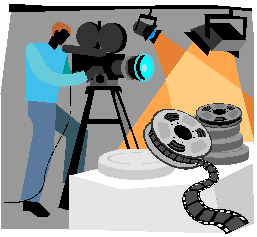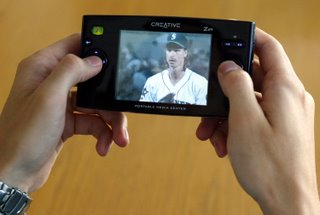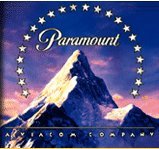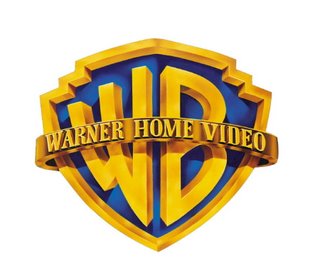MediA StudieS DegreE?

Bad press, good practice Media studies gets a lot of flak. Do graduates in the subject think any of it is justified?
Mira Katbamna reports Monday August 21, 2006
The GuardianMedia studies took over from sociology a few years ago as the course most likely to be scoffed at by smart people at dinner parties. Some of those scoffers even worked in the media, but had perhaps entered their chosen profession via PPE at Oxbridge and thanks to work placements arranged by friends of their parents. Why do media studies - and journalism and TV production - courses have a bad name, when often they provide valuable practical experience? And what do graduates think?
Jim AdamsonMD of SpeakEasy Productions. Media studies, Stirling 1988 I wanted to be an academic originally, so it was just by chance that I made a short film. I loved it, so I then did a postgrad at Dundee and spent a year just making programmes. I won a major student prize, BP Expo 1990, and from there I started my own company.
Doing media studies has helped me. What I got from it was not so much the ability to structure programmes per se, but how to structure communication. Most of the people we take on here are more interested in how to create communication - I take it as read that they will be programme-makers.
I wouldn't necessarily recommend media studies. At Stirling, media studies was extraordinarily intellectual stuff, which I loved, but there are some really crap courses out there as well. More and more I find I'm interested in people who are rounded and highly intelligent. So long as they have been assiduous about it and have come out with a really stonking degree, it doesn't matter whether or not it's media studies.
Ewan MacLeodMD of Golden Square Media. Media and communication studies, Southampton 1992 I always wanted to be behind the camera so I couldn't see the point of doing a non-vocational course. It was quite intensive - 9 to 5.30 every day. For me it was all about shooting in the studio and editing the work - the law part was taxing, though of course it's important to understand it.
I loved all the hands-on stuff, but the best thing about the course was meeting people who all felt like I did - we were very keen to get on, worked all day and all night and gave up everything to reach that first level - and we're all still friends now.
I'd definitely recommend media studies. I think that there's always the flipside that everyone has to start at the bottom anyway, but what college gave me was a real insight into the whole business.
Georgie ThompsonSky Sports presenter, Broadcast journalism, Leeds 1999 I knew I wanted to be a journalist but I was sceptical about media studies to start with. I went for it in the end because the course had a good balance between theory and practice - you want to get your hands on a camera and get on with it, but if you don't understand the history of what's gone before, then it's difficult to do anything that's any good.
And the other thing was that people who were still in the industry taught the course, and we could use BBC facilities.
I think it's given me a big advantage. It gives you confidence so that when you're working as a runner on live telly, as I did at GMTV, and everything is collapsing, you know what to do without having to ask stupid questions that nobody wants to answer.
I have nothing but praise for my tutors at university. I think they were very realistic and told us that we were not going to come out and immediately become reporters. You still face criticism about media studies but when I came out I didn't have to do a postgrad degree - so I think if you're sure that you want to be a journalist, then go for it.
Clare MacleanPost-production supervisorMedia and communication studies, Southampton 1991Maclean was the post-production supervisor on Layer Cake, Young Adam and 24 Hour Party People Our course gave us an overview of the whole of the media, from television to marketing, and gave me the confidence to get my first job and move into film. I really don't think I would be where I am now without it. But I think the most important aspect was meeting the people on the course, all moving to London, and then working our way up together. It's great networking now that everyone is doing extremely well, but it has also been incredibly supportive.
Getting on is about luck and who you know, so doing work experience and getting the names and then hounding people is really important. Yes, do media studies, but get all the experience that you can. And if you want to work in film, sign yourself up as an extra so that you can get on set and see what it's really like.
Mark DalyBBC journalist. Film and media studies, Stirling 1997Daly was RTS journalist of the year for The Boys Who Killed Stephen LawrenceMedia studies was very new when I was choosing what to do, and it just stood out from everything else. I'd always fancied journalism, and the course was quite cutting edge - we got to play with real cameras, editing machines, make our own documentaries and it was great. Even now, when I'm in an editing suite some of the basic rules I was taught at Stirling still come in handy.
I would definitely recommend media studies as your first degree. When you're 18 you probably don't know that much about media issues, you probably don't read a newspaper. I know I didn't - my head was full of mince at that age. So it gets you interested and gives you a nice gentle grounding. Nothing can prepare you for life as a journalist like six weeks at a newspaper will, but it gives you some good, solid basics. And yes, there was always a bit of banter from the guys doing English and history, but I guess we've had the last laugh now.
Mark CousinsDirector, writer, film historian. Film and media studies, Stirling 1987Cousins runs production company 4Way Pictures with Antonia Bird, Robert Carlyle and Irvine Welsh, and was director of the Edinburgh Film Festival 1991-96. The main thing Stirling did for me was give me intellectual confidence. I didn't learn how to use equipment - I don't think I touched a video camera while I was there - and yet I started making documentaries for television soon after I left.
It gave me time to think and learn about film, so I had confidence in my own opinions. I knew nothing about the buttons on cameras, but when I walked into the offices of Channel 4 or interviewed for the directorship of the Edinburgh Film Festival I wasn't scared, because I knew I'd read hundreds of books on film and that I'd seen hundreds of films. It offends me very much that so many people in the media and film world are Oxbridge, but in the end the main thing is having confidence in your own ideas, and that confidence can come from studying English or media. For me, media is more important - we need to equip the next generation with the visual reading skills they need in order to make sense of the screen-dominated world in which we live.
Bill Hobbins RDF executive producer. Media and communication studies, Southampton 1991
Hobbins was executive producer on Robot Wars and Scrap Heap Challenge
I left school with appalling results and got rejected from everywhere, but luckily managed to talk my way on to the media course. It was very practical and the TV stuff just caught my imagination.
In a way, your degree doesn't matter. Even if you've got a first from Oxford, you'll still start off as a runner. My first job was to switch the red recording light on and sweep the studio once everyone left. But having said that, getting work experience in the first place is very hard, so making contacts through the college is very important.
All experience and knowledge are valuable - it may be theory and not practice, but if you want to work in the industry, you'll find the degree course exciting - and at the end of it you'll know how it all works and can get out there to use what you've learned.
Ronny JhuttiActor. Television production, Bournemouth 2002 Jhutti has appeared in Eastenders, Doctor Who, Ideal, Cutting It and Nina's Heavenly DelightI started as a child actor, so I missed out on a degree the first time round. A few years ago, I decided I wanted to direct - I thought I would try to get into film school, but then realised I could go to university and do a degree.
It was definitely the technical side that was the most beneficial for me. Actors are at the centre of the circle in terms of filming and so it's important that you're aware of the technical stuff, from shot compositions to how something is going to be edited. And because I specialised as an editor, it opened up a whole different world - working with rough footage and piecing together and creating things that way. The idea that media studies is a Mickey Mouse degree is nonsense, obviously - but really, it's horses for courses - anything is important according to where you are in your life.
Jamie WilsonCBBC runner. Television production, Bournemouth 2005 I spoke to lots of people before university, and they all said "don't do media studies". But several people mentioned Bournemouth because the course is very practical and there's less of the random theory that media studies is known for.
The best bit was getting to learn the full range of skills - camera, sound, editing, lighting. And also the work experience - we had to do six weeks' placement within the course. I did mine at CBBC, which eventually led to my job.
I knew I really wanted to work in telly, so the course was the obvious choice because you are learning the tools of the trade - but I did a hell of a lot of work experience as well while I was at uni - you can't have one without the other.
Shelley JoffreReporter, PanoramaMedia studies with politics, Stirling 1990I wanted to be a journalist and media studies was the thing that most closely matched. I had had quite a sheltered existence, so didn't realise that everybody else was doing PPE at Oxford.
The course was much more academic than it is now, and I was desperate for more hands-on experience, but it was very valuable just to be able to take a step back and look at how the industry works. Back then I didn't know I was going to end up in broadcasting, so some of what I learned in those classes at Stirling has definitely come in useful.
I've never had any inkling that doing media studies has been harmful - I found it an interesting subject to study and I've ended up doing the work I wanted to do. But obviously, if there are 10,000 people wandering around with media degrees you have to find a way to distinguish yourself - choose somewhere with a good reputation and do lots of work experience
I was told by Mr Bush to cheak out this article which was published in order to help people going on to uni decide whether Media Studies was a worthy subject to do or not. This article clearly allows us to undertsand that going into the Media is extremely competitative and only those with the passion will succeed in the end. It also doesnt fail to mention that alot of work experince is needed to gain some recogniton, nonetheless, it just goes to show that Media Stuides is not a 'Mickey-Mouse' subject!!!http://media.guardian.co.uk/broadcast/story/0,,1855017,00.html








